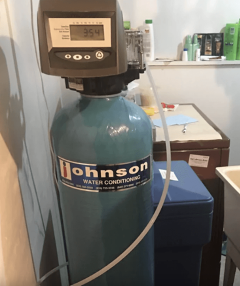Water Softening 101: Insights from an Itasca Water Purification Company
 Over the years, you’ve probably heard a thing or two about water softening. You might even have a bit of an idea as to what it is. However, that doesn’t mean that you’re truly familiar with water softening and all that it entails.
Over the years, you’ve probably heard a thing or two about water softening. You might even have a bit of an idea as to what it is. However, that doesn’t mean that you’re truly familiar with water softening and all that it entails.
Are you interested in learning more about it? If so, you’re in the right place. Take it from an Itasca water purification company: here are the basics of water softening.
Understanding Hard Water
To understand the importance of soft water, it’s best that you first understand hard water. Simply put, hard water is water that contains excess amounts of calcium and magnesium. What does this mean? It means that hard water comes with a number of negative characteristics, which we’ll discuss below.
Creates Limescale Buildup
One negative aspect of hard water is that it creates limescale buildup. This is a white, powdery substance that shows up on metal sinks and shower faucets. It’s essentially a small pile of calcium and magnesium that remained after the water has evaporated.
One thing to note here is that limescale buildup is not functionally impairing. That said, it is aesthetically displeasing, so it’s best to have it eliminated with the use of a water softener.
Results in Pipe Buildup
In addition to building up on sinks and faucets, limescale also builds up on the insides of water pipes. Unfortunately, over time, this can cause those pipes to narrow, resulting in reduced water pressure. In extreme cases, it can even block the flow of water completely.
The solution? You can install a water softener.
Causes Skin and Hair Issues
The human body is impacted by hard water as well. No, it’s not going to make you sick; however, it can wreak quite a bit of havoc on your skin and your hair.
When the calcium and magnesium in hard water make contact with the body, they tend to cling, which creates issues for your skin and hair. As a result, the skin and hair become exceedingly dry, leading to rashes, acne, split ends, and general deterioration.
Want to eliminate this problem altogether? You should look into installing a water softener.
Breaks Down Water-Based Appliances
Water-based appliances can also suffer as a result of hard water. The calcium and magnesium in the water can place undue wear and tear on the appliances’ internal mechanisms, causing them issues with efficiency and lifespan.
If you want to get the most out of your dishwasher, washing machine, and other water-based appliances in your home, you should install a water softener.
How Does a Water Softener Work?
Water softeners work through a process called ion-exchange. Making use of resin beads, water softeners trade sodium ions in exchange for the calcium and magnesium ions in water. This effectively makes the water soft, taking away a number of undesirable traits.
To run a water softener, you’ll need to add salt to it on a regular basis. However, you aren’t supposed to add regular table salt — it requires a specifically-designed softener salt, which has more of a pellet shape.
Failure to add this softener salt will lead to issues with your water softener as a whole. In other words, it will prevent your water softener from softening your water.
In Need of an Itasca Water Purification Company?
Are you tired of dealing with hard water in your home? Looking for a reputable Itasca water purification company to install a water softener? If so, look no further — Johnson Water Conditioning is here to help.
We’ve installed water softeners in countless homes throughout Itasca and beyond. Regardless of the size of your water supply, our team of specialists can help soften it.
Contact us today to request a free quote!

 Better Water for
a Better Life
Better Water for
a Better Life
